Keywords:
scientific ability, experimentation, didactic strategy, education, scientific thinking.Abstract
This article reports on the advances of the research project “Didactic Proposal for the Development of Scientific Skills in Sixth Grade Students”, through the application of didactic strategies that include field trips, environmental projects, production of material for the Learning and experimentation. The purpose is to demonstrate how students are able to enhance scientific skills in formulating questions, explaining phenomena, identifying variables, collecting and interpreting data and using proper language of the Natural Sciences to facilitate the appropriation of knowledge in the area of Natural Sciences, awakening scientific spirit and promoting the understanding of natural phenomena. The methodological perspective used was an adaptation of the method of Kurt Lewin in which three stages of social change are managed: thawing, movement and refreezing. An additional stage called pre-movement was included, as a complement to the process. These stages were carried out in seven moments: diagnosis, background check, exploration, design of the didactic proposal, and implementation of the proposal, systematization and analysis of results. The project shows that, when implementing didactic strategies that allow the creation of spaces for the conscious application of knowledge in a contextualized way, in contact with the object of study, with fieldwork in search of knowledge and practical usefulness that young people find in Scientific theory, they generate that the children develop scientific abilities that favor diverse cognitive processes and the construction of mental structures that awaken the students interest for learning.
Downloads
References
Arrieta, J., & Daza, S. (2012). La promoción de competencias científicas en las primeras edades. Ingenio. Educación, Artes y Humanidades, 5(1), 54-62.
Ausubel, N. (1983). Psicología Educativa: Un punto de vista cognoscitivo (2ª. ed.). México: Editorial Trillas.
Batista, Y. (2013). Tratamiento al contenido del área de las ciencias naturales para favorecer la resolución de problemas. Didasc@lia: Didáctica y Educación, 4(2), 85-101.
Calderón, Y. (2012). La formación de actitud científica desde la clase de Ciencias Naturales. Revista Amazonia Investigativa, 1(1), 36-53.
Daza, S., Quintanilla, M., & Arrieta, J. (2011). La cultura de la ciencia: contribuciones de la ciencia para desarrollar competencias de pensamiento cientifico en un encuentro con la biodiversidad. Revista Cientifica, (14), 97-111.
Escobedo, H. (2001). Desarrollo de competencias básicas para pensar cientificamente. Una propuesta didáctica para Ciencias Naturales. Bogotá: Colciencias.
Furman, M. (2012). ¿Qué ciencia estamos enseñando en contextos de pobreza? Praxis & Saber, 3(5), 15-51. https://doi.org/10.19053/22160159.1138
Furman, M., & De Podesta, M. (2009). La aventura de enseñar Ciencias Naturales (1ª. ed.). Buenos Aires: Aique Grupo editor.
García, S.M., & Furman, M. (2014). Categorización de preguntas formuladas antes y después de la enseñanza por indagación. Praxis & Saber, 5(10), 75-91. https://doi.org/10.19053/22160159.3023
García, G., & Ladino, Y. (2008). Desarrollo de competencias científicas a través de una estrategia de enseñanza y aprendizaje por investigación. Studiositas, 3(3), 7-16.
González, R., & Perfecto, N. (2015). La actividad investigadora escolar en el proceso de enseñanza aprendizaje de las ciencias naturales. Innovación Tecnológica, 21(3), 1-13.
Harlen, W. (1999). Enseñanza y aprendizaje de las Ciencias (6ª. ed.). Mejía, Lequerica, Madrid: Editorial Morata.
Katzkowicz, R., & Salgado, C. (comps.) (2006). Proyecto: ConCiencias para la sostenibilidad “Construyendo ciudadanía a través de la educación científica”. Recuperado en febrero de 2016, de: http://unesdoc.unesco.org/images/0015/001595/159537S.pdf
Marqués Graells, P. (2000). Impacto de las TIC en la educación: funciones y limitaciones. DIM (Didáctica y Multimedia). Recuperado de http://www.uovirtual.com.mx/moodle/lecturas/ustics/3.pdf
Matos, J. (1995). El paradigma socio-cultural de L. S. Vygotsky y su aplicación en la educación. Heredia, Costa Rica: Universidad Nacional.
Murillo, F. (2011). Métodos de investigacón en educación especial. Madrid.
Sadin, E. (2003). Investigación cualitativa en educación. Madrid: McGraw-Hill.
Sánchez, J. (2000). Publicaciones y ayudas didácticas para profesores. Recuperado de: http://www.saladeprensa.org/art112.htm
Solbes, J., & González, E. M. (2016). Aportes a la formación del profesorado constructivista: resultados en dos países. Praxis & Saber, 7(13), 63-88. https://doi.org/10.19053/22160159.4166
Taylor, S. (1992). Introdución a los métodos cualitativos de la investigación. Mexico: Editorial Espaidos.
Vygotsky, L. S. (1978). Pensamiento y Lenguaje. Buenos Aires: La Pléyade.




